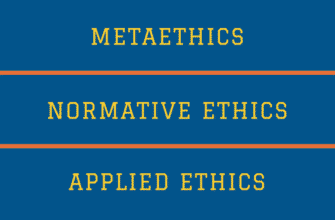Let’s say, just for the sake of discussion, that the leader of a country stated his predecessor had committed a federal crime. Then, when asked to provide proof, he pivoted, declaring we misunderstood his blatant accusation. What about that same leader denying making statements when he’s been recorded making those very statements? Unlikely, right? What’s even more unlikely is that this guy has a loyal following who believes him. How does this happen? It may be a little psychological trick called gaslighting.
Gaslighting is a tactic in which the victim is manipulated into questioning their reality. Through methodical mental exploitation, the perpetrator is able to control the victim’s perceptions of themself and their environment, thereby providing control over the victim’s behaviors.
The term “gaslighting” originated with the play Angel Street and its subsequent 1944 film Gaslight starring Ingrid Bergman and Charles Boyer, in which a husband attempts to convince his wife she is crazy by manipulating small elements of her environment. For instance, per the movie title, he dims the gaslights and then pretends that she’s the only one who thinks the room is getting darker. Slowly and steadily, the wife begins to succumb to the self-doubt created by the subtle changes.
In the beginning of the article, I loosely described a leader who refutes the reality we all see. You probably thought I was discussing President Trump and his endless supply of falsehoods (his ‘landslide’ election, Russian hacking, history of sexual harassment, border wall, ability to save jobs/healthcare/economy, etc and etc and etc). I was, but I also described the actions of many other ethically-dubious leaders.
Leaders (the ethically-dubious ones, not you) utilize gaslighting to gain a loyal following… and by “loyal” I’m referring to a cult-like culture where no one disagrees with, questions, or even considers doubting the direction of the leader. People adhere because they’ve undergone a form of mental abuse where their perception has been morphed into viewing the world through the leader’s reality. It is then reinforced when they witness the belittlement and banishment of those who dare to deviate from the party line.
Before you pass judgment on these supposed weak-minded followers, its important to note that we are all susceptive to gaslighting. It takes place so slowly that we are often unaware we’ve been brainwashed. It can involve such truth-blurring techniques as:
Denying they said something even though you have proof. You heard them say they would do something, but now they deny it. It makes you start questioning your intellectual or moral validity. Maybe they never said it or you misunderstood. Either way, the more it happens, the more you blame yourself for being wrong and begin accepting their reality.
Telling you or others that you’re crazy or a liar. Not only is this dismissive and aimed to make you question yourself, it also creates a fear that others will side with the gaslighter to question your sanity and honesty.
Exploiting what is important to you. Gaslighters know what you care about and use it to make you doubt yourself. They then invoke your worst insecurities, intimidate you, and mock you under the guise of humor.
Wearing you down over time. Gaslighting typically starts small and gradually ramps up. It’s like the way you cook a crab; the heat is turned up so slowly that the crab never realizes the water is boiling.
Aligning people against you. Gaslighters know who will stand by them and they pit these people against you. As an FYI, they are pitting you against them, as well. Side comments like, “XXX doesn’t think you know what you’re talking about” are an effective way to isolate employees and create distrust amongst the ranks. It also forces people to rely on the gaslighter as the single source of “accurate” information.
Using occasional positive reinforcement. After a stream of criticism, slights, and insults, they throw in some praise. This can be confusing, but it can also make you feel just good enough to undergo more of their abuse and create an emotional opening for further manipulation.
I don’t list these techniques as a “how to.” With awareness, you can identify the signs and avoid the gaslighter’s trap. I stress avoidance because, according to the book The Gaslight Effect, this is the single most effective way to not be gaslit. Any attempt to prove the gaslighter wrong will most likely lead to you trying to prove the gaslighter right. That’s why they’re an effective gaslighter; they can turn your defense against you
No attempt to stop gaslighting will be effective unless the person being gaslighted is willing to walk away from the relationship. In other words, one must be willing to end the gaslighting relationship. In the arena that we are discussing; that means walking away from the wider culture at large.—Dr. Robin Stern, The Gaslight Effect
Whether it’s your supervisor or the President of the United States, we must remain vigilant against manipulation. Seek leaders whose actions match their words. People who do not feel the need to re-explain or re-clarify every statement. People who are more concerned with doing the right thing than with being right. People who can (and willingly) support their arguments with facts. People who exert more effort building you up versus pressuring you to follow them. This should be obvious, but gaslighting sneaks up on you; once you’re in, it is difficult to unwind.







